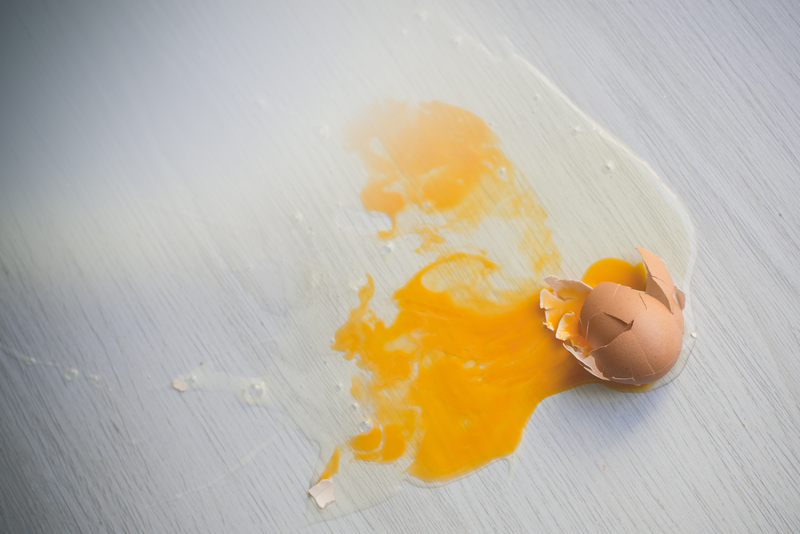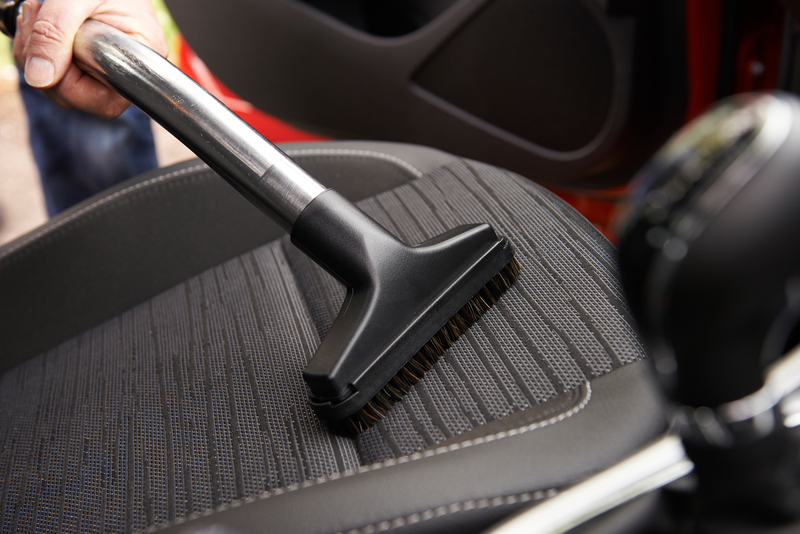Sparkling Solutions: Mastering Jewellery Cleaning Methods
Posted on 28/06/2025
Sparkling Solutions: Mastering Jewellery Cleaning Methods
Shimmering jewellery is the ultimate way to accentuate your personality and style. However, even the most dazzling pieces can lose their luster over time due to exposure to dirt, oils, and environmental pollutants. To ensure your precious keepsakes maintain their brilliance, proper jewellery cleaning is essential. In this comprehensive guide, we'll unlock sparkling solutions and expert tips for mastering jewellery cleaning methods that are safe, effective, and suitable for a variety of precious stones and metals.
Why Is Jewellery Cleaning Important?
Your cherished rings, necklaces, and earrings endure daily exposure to substances that can dull their shine. Residual lotions, sweat, air pollution, and even household cleaners contribute to the loss of brilliance in your favourite accessories. Regular cleaning not only restores visual appeal but also:
- Preserves value by preventing tarnish and corrosion
- Protects delicate stones and metals from irreversible damage
- Minimizes allergy risk by removing bacteria and irritants
- Enhances gemstone sparkle and overall aesthetics
Understanding and mastering a range of jewellery cleaning methods empowers you to prolong the life and beauty of your collection.

Main Types of Jewellery Materials and Their Cleaning Needs
Before diving into cleaning techniques, it's vital to recognize the unique needs of different jewellery materials. Here's a brief overview:
- Gold: Soft and prone to scratches, requires gentle cleaning.
- Silver: Tends to tarnish; needs specific anti-tarnish methods.
- Platinum: Durable but loses polish over time.
- Gemstone Jewels: Vary widely; diamonds are hardy, while pearls and opals are delicate.
- Costume Jewellery: Often made with non-precious metals and adhesives, which demand extra caution.
Assessing Your Jewellery Before Cleaning
Always inspect your jewellery before attempting any cleaning. Look for:
- Loose stones or settings
- Cracks or chips in gemstones
- Signs of tarnish or discoloration
If you notice any damage, consider seeking professional jewellery cleaning rather than DIY approaches.
DIY Jewellery Cleaning Methods: Step-By-Step Guide
1. The Classic Dish Soap and Warm Water Solution
Perfect for gold, platinum, and hard gemstones (like diamond, sapphire, ruby), this method is gentle yet effective.
- Mix a few drops of mild dish soap with warm (not hot) water.
- Soak jewellery for 15-20 minutes.
- Gently scrub with a soft-bristle toothbrush.
- Rinse with clean water and pat dry with a lint-free cloth.
Tip: Never use hot water, as sudden temperature changes can damage certain stones!
2. Baking Soda Paste for Silver Jewellery
Silver is admired for its radiant shine but can tarnish quickly. Restore its brilliance by:
- Mixing three parts baking soda with one part water to form a paste.
- Applying with a soft cloth, gently rubbing along the grain.
- Rinsing thoroughly and buffing dry.
Warning: This method is best for plain silver pieces--avoid on silver jewellery embedded with soft stones.
3. Alka-Seltzer Bath for Gemstone Jewellery
Alka-Seltzer (without coloring agents) can revive gemstone sparkle. Just drop your jewellery in a glass of fizzing Alka-Seltzer for a few minutes, then rinse and dry.
Note: Do not use this method for pearls or opals.
4. Vinegar Soak for Heavily Tarnished Silver
- Soak pure silver pieces in a solution of half a cup white vinegar and two tablespoons baking soda for 2-3 hours.
- Rinse thoroughly and dry.
This method is not recommended for silver with gemstones.
5. Quick Cleaning for Costume Jewellery
Costume jewellery often features plated metals and glued components that can be damaged by excessive moisture. Clean by:
- Wiping gently with a soft, dry microfiber cloth.
- For stubborn grime, dampen the cloth slightly and avoid soaking.
- Ensure the piece is completely dry before storing.
Professional Jewellery Cleaning Methods: When and Why
At times, home remedies might not suffice, especially with valuable or antique pieces. Here's where professional jewellery cleaning services step in:
- Ultrasonic Cleaning: Uses high-frequency sound waves in a cleaning fluid. Effective, but not safe for all stones (e.g., pearls, emeralds).
- Steam Cleaning: Powerful method to remove stubborn buildup. Best for hard gemstones and solid metals.
- Polishing Services: Professional jewellers can buff out scratches and restore original shine, especially for gold and platinum.
Pro Tip: Seek expert guidance for vintage, valuable, or intricately-set jewellery to prevent accidental damage.
Best Practices for Safe Jewellery Cleaning
- Always check manufacturer's instructions or consult your jeweller for stone-specific care requirements.
- Test cleaning solutions on a small, inconspicuous area first.
- Use soft, lint-free cloths to avoid scratches.
- Never use bleach, acetone, or harsh chemicals--these can permanently damage precious metals and stones.
Caring for Special Jewellery Types
Pearls and Opals: Gentle Handling Is a Must
These organic gems are highly sensitive to chemicals, acids, and abrasives. To clean:
- Wipe with a soft, damp cloth after wearing.
- Avoid soaking, detergents, or ultrasonic cleaning.
- Store separately to prevent scratches.
Remember: Pearls should be restrung periodically by a professional to maintain their integrity.
Emeralds, Turquoise, and Delicate Gemstones
Some stones contain internal flaws or porous surfaces. Use only water and a soft cloth. Avoid temperature extremes and chemicals.
Restoring Antique and Heirloom Jewellery
Antique pieces can feature fragile soldering or unsteady settings. When in doubt, have your heirlooms cleaned and inspected by experts.
Homemade Jewellery Cleaning Solutions: Do They Work?
While commercial cleaners flood the market, many homemade jewellery cleaning solutions provide equal, if not better, results--often at a fraction of the cost.
Baking soda, vinegar, club soda, and mild soaps are popular options, but not all are appropriate for every material. Ensure you understand your jewellery's unique properties before choosing a method.
How Often Should You Clean Your Jewellery?
The frequency of cleaning varies based on wear and type:
- Daily-wear items (rings, earrings): Clean once a week.
- Occasional-wear jewellery: Clean after each use or once a month.
- Silver pieces: Clean at the first sign of tarnish or monthly.
Regular maintenance and careful handling will dramatically extend the life and beauty of your jewellery.

Tips to Prevent Tarnishing and Keep Jewellery Shining
- Store jewellery in dry, airtight containers, preferably lined with anti-tarnish cloths or bags.
- Keep different metals and stones separate to avoid scratches and reactions.
- Remove jewellery before swimming, showering, or using cleaning products.
- Wipe pieces after each use to remove oils and residue.
Adopting a preventative approach is half the battle in keeping your collection radiant.
Frequently Asked Questions About Sparkling Jewellery Cleaning
Can toothpaste be used to clean jewellery?
Although toothpaste is a popular home remedy, it is not recommended for precious jewellery. Its abrasive nature can scratch gold, silver, and softer gemstones.
Is it safe to use ultrasonic cleaners at home?
Ultrasonic cleaners are effective but come with risks if used improperly. Never use them for pearls, emeralds, opals, or antique pieces. Stick to hard stones and sturdy metals, and consult user manuals closely.
What to do if my jewellery turns black after cleaning?
This could be due to a chemical reaction. Rinse thoroughly and consult a professional. Always avoid harsh chemicals and check cleaning solution compatibility.
How to clean jewellery with intricate designs?
Use a soft-bristled brush (like a baby toothbrush) to reach crevices. Avoid soaking glued-in stones, and dry thoroughly to prevent moisture retention.
Can I use rubbing alcohol for jewellery cleaning?
Rubbing alcohol is suitable for hard, non-porous gemstones and metals but not for organic stones or plated jewellery. Always test a small area first.
Conclusion: Shine Bright with the Right Jewellery Cleaning Techniques
Whether you own heirloom diamonds, a silver charm bracelet, or quirky costume accessories, mastering jewellery cleaning methods is vital to preserving their sparkle and value.
- Select the right cleaning method for each material.
- Regular maintenance prevents tarnish, buildup, and damage.
- When in doubt, consult professional jewellery cleaning experts.
By investing a little care and using the proper sparkling solutions, you can enjoy your stunning jewellery for years to come.
Let your personality--and your jewellery--shine!




